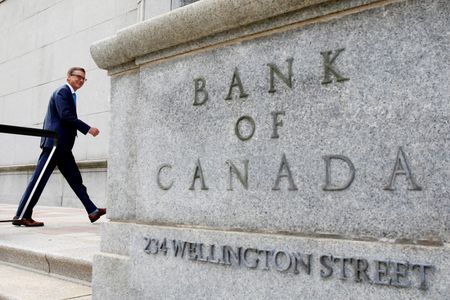By Steve Scherer
OTTAWA (Reuters) – Canada’s Liberal-led government will keep its powder dry when it unveils a fiscal update next month, and though it could contain additional targeted spending, it will not make the central bank’s job harder, two senior government sources told Reuters this week.
The so-called fall economic statement (FES) is released annually and contains updated economic forecasts, and often some new spending plans reflecting priorities that have emerged since the budget was drafted in April.
“The FES will not make the Bank of Canada’s job of fighting inflation harder,” said one source. “It behooves the federal government to continue to demonstrate some responsible fiscal stewardship right now,” said a first source familiar with the draft document.
“The main focus is supporting workers and families through a globally challenging economic time,” said a second source familiar with the discussion.
Expect the FES “to chart a responsible course, investing in targeted ways in Canadians while retaining fiscal firepower for whatever challenges that may emerge in the world,” the second source added.
Neither source would elaborate on where any “targeted” spending might go. The Finance Ministry declined to comment. The sources were not authorized to speak on the record.
The government’s limited spending plans will be a relief to investors, as it would further aid the Bank of Canada’s efforts to fight inflation. Canada should avoid new stimulus in the FES and take heed from recent market turmoil in Britain, analysts said earlier this month.
The Bank of Canada announced a smaller-than-expected interest rate hike on Wednesday and said it was getting closer to the end of its historic tightening campaign. It said economic activity would be close to flat from the fourth quarter of 2022 through the first half of 2023.
Inflation in Canada has slowed to 6.9% from a peak of 8.1%, but core measures remain broad-based and persistent.
Finance Minister Chrystia Freeland said earlier this month that Canada must strengthen incentives meant to help industry scale up clean technologies, after the United States passed massive investments in August to accelerate its green transition.
She said some “response” to the U.S. would be in the FES and in next year’s budget.
“The lion’s share will be in the budget,” the first source said.
In an interview this week, Natural Resources Minister Jonathan Wilkinson said additional support for hydrogen, critical minerals and battery manufacturing were merited, without saying whether action would be taken in the FES or in next year’s budget.
“We have said in some of the areas that we see as being strategic, we will certainly be looking to respond. One of those is hydrogen,” Wilkinson told Reuters, that government is going to take a “hard look” at areas including mineral processing and battery manufacturing.
($1 = 1.3557 Canadian dollars)
(Reporting by Steve Scherer; additional reporting by Rod Nickel in Winnipeg; editing by Jonathan Oatis)

